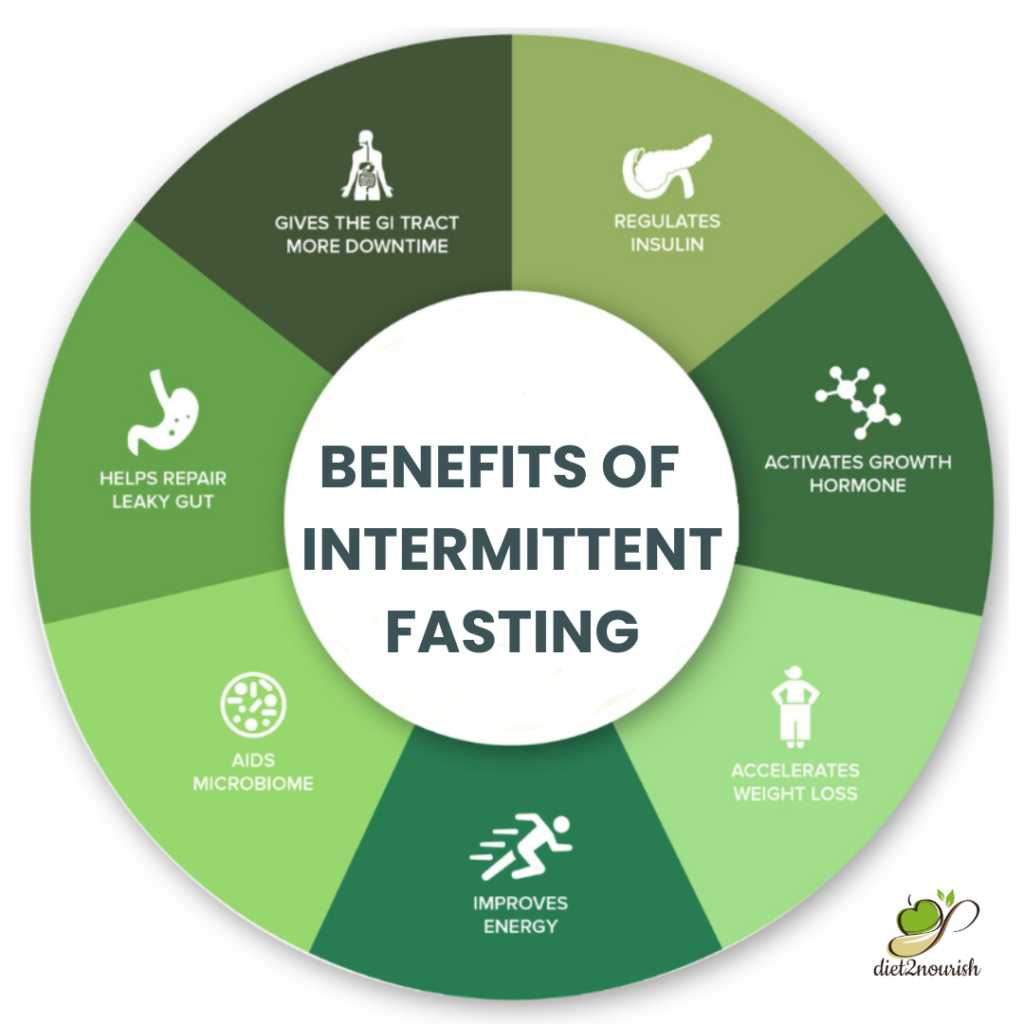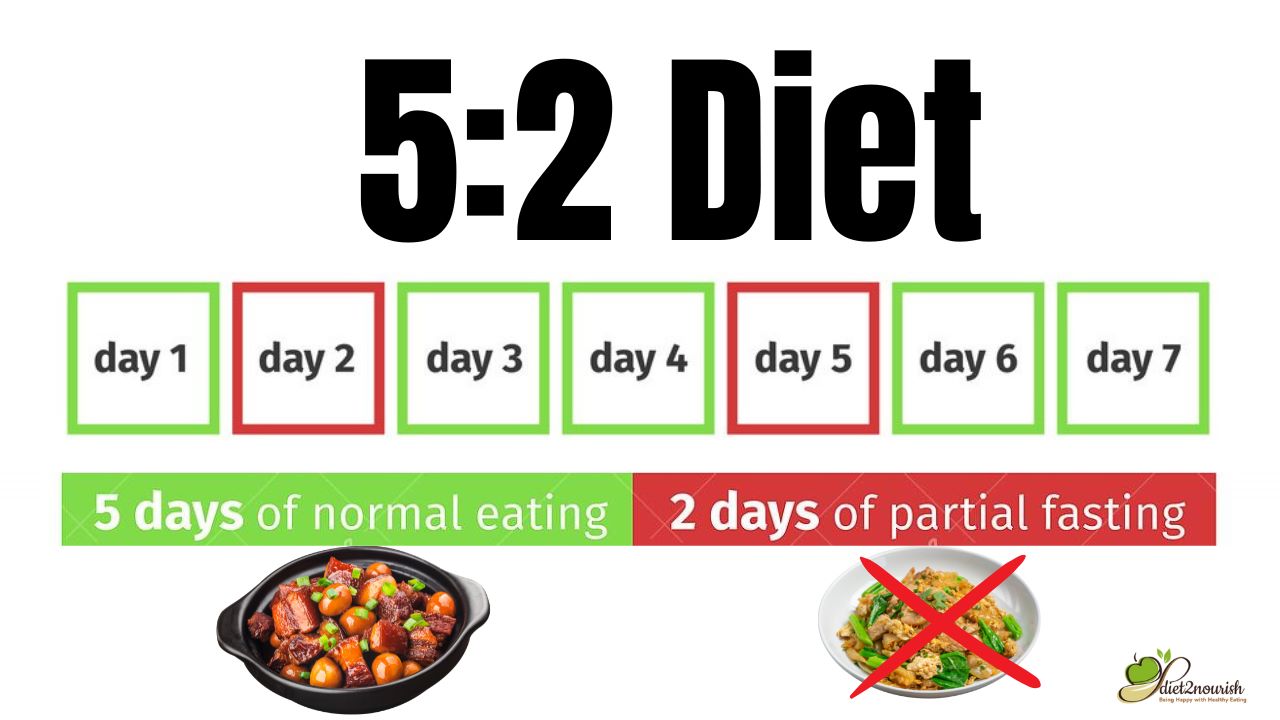5:2 Diet
Today we will tell you a good diet plan for weight loss. When you start your weight loss journey, you get to hear different suggestions from different people. Some say cut out rice, others say they cut out carbs altogether, and some, surprisingly, even suggest you starve yourself to lose weight. But you mustn’t enter into everything blindly; instead, take the advice of a nutritionist’s expert and follow the same. This 500-calorie diet plan is one of the popular diet plans for weight loss. But to get the best results before following it, you must consult your nutritionist.
5:2 Intermittent Fasting Diet
The 5:2 diet, also known as intermittent fasting, is one of the most popular types of fasting. This usually involves eating 5 days per week and then restricting your calories to 500 to 600 for 2 days per week. This can be done by not eating or consuming very few calories during fasting days. This type of intermittent fasting has been associated with several health benefits, including weight loss, improved insulin sensitivity, and reduced inflammation. You also get the benefits of intermittent fasting, like more energy and mental clarity.
Tips on 5:2 Intermittent Fasting you can follow-
- Choose 2 days of the week to fast. It doesn’t matter which day you choose. However, most people prefer to fast on Mondays and Thursdays.
- On fasting days, you will either eat nothing or consume only very few calories. For example, you can have black coffee or tea in the morning. Then you can eat salad or fruit for lunch. You can have a cup of broth-based soup for dinner.
- You can also drink water, unsweetened soda, and herbal teas during fasting days. Also, avoid sugary drinks, alcohol and high-calorie drinks.
- If you are new to intermittent fasting, start with one fasting day every week and gradually increase to 2 days weekly. This is because your body adjusts.
Benefits of 5:2 Intermittent Fasting

There are many potential benefits of intermittent fasting and the 5:2 diet, some of which are listed below.
- Weight Loss
5:2 Intermittent fasting is an effective weight loss plan. It lowers your calorie intake, which can also help you lose weight. If you were eating three meals a day during the fasting days, you would be consuming fewer calories than before. In this way, this lack of calories can become the reason for your weight loss over time.
- Increased Insulin Sensitivity
5:2 Intermittent fasting may also help increase insulin sensitivity. Insulin is a hormone that helps control your blood sugar level. When you have insulin resistance, the body has difficulty using insulin effectively. This can increase your risk of high blood sugar levels and diseases like type 2 diabetes. According to studies 5:2 diet, intermittent fasting helps improve insulin sensitivity and lower blood sugar levels.
- Reduction In Inflammation
5:2 Intermittent fasting may also be beneficial in reducing inflammation. Inflammation is a process that helps your body heal from injury and fight infection. However, chronic inflammation can contribute to many diseases, such as heart problems, cancer and Alzheimer’s. The 5:2 diet is believed to help increase levels of anti-inflammatory substances and reduce inflammation.
- More Energy & Mental Clarity
5:2 Intermittent fasting also provides more energy and mental clarity. This is because fasting helps improve insulin sensitivity and reduce inflammation. Better functioning of these processes gives your body more power to do other things. Also, in the 5:2 diet, intermittent fasting improves your concentration and focus. The reason for this isn’t entirely apparent, but it’s because intermittent fasting helps lower hormone leptin levels.
- Dietary Recommendations
Typically on fasting days, you should aim to eat two meals, each containing around 500 calories. Also, it is essential to ensure that these foods are full of nutrients. Plus, they should have enough protein and healthy fats to satisfy you. You can have 3 meals and 2 snacks during fasting days.
What should we eat in the 5:2 Diet?
Some people must be aware of what they should eat during fasting days. Whereas you can technically eat whatever you want. However, certain foods can help make your fast more successful. According to experts, you should focus on eating nutrient-rich foods during fasting days. This is because it can help keep you satisfied. These foods include high protein foods, healthy fats, and fibre.
Some examples of foods not eaten during fasting include:
- Eggs
- Fish
- Chicken
- Nuts and seeds
- Oils (olive and coconut oil)
- Avocado
- Vegetables (leafy vegetables, broccoli and cauliflower)
- Fruits (berries, apples and oranges)
- Beans and Legumes
- Whole grains (quinoa, oats, and brown rice)
- Soups and Stews
- Herbal tea
- Bone broth
Thus, there are many nutrient-rich foods that you can eat during fasting days. However, focusing on eating foods that help keep you satisfied is essential. Also, make sure you are getting enough calories.
What not to eat in the 5:2 Diet?
You should eat these foods mentioned during the days of fasting. However, there are some foods that you should avoid consuming. These foods can cause you to feel hungry, making it more difficult for you to fast.
During fasting days you are advised to avoid certain food items. Some such examples include the following:
- Sweet foods and drinks (cookies, cakes, candy, soda, and fruit juice)
- Processed foods (chips, crackers, and bread)
- Liquor
- Starchy vegetables (potatoes, corn, and peas)
- High-fat foods (fried foods and fast food)
- Refined carbs (white bread and white rice)
- All of these foods can make it more difficult for you to fast. If you want to be successful with the 5:2 diet, you must avoid these foods.
Things to consider
5:2 Intermittent fasting is a great way to improve your health and lose weight. However, before starting this diet, you should consider some things, such as.
- Talk to your doctor before starting any new diet. This is especially important if you have a medical condition or are taking any medications.
- You need to ensure you get enough calories during the fasting days. You may experience side effects such as fatigue, headache and irritability from insufficient caloric intake.
- Apart from this, it is essential to stay hydrated. When you fast, your body loses fluids. So you need to make sure that you are fulfilling them. For this, drink plenty of water on fasting and non-fasting days.
- You need to be prepared for hunger. Fasting can make you hungry. In such a situation, planning such as distraction techniques or eating small amounts of food is essential to deal with hunger.
- Remember that intermittent fasting is not a quick fix. This is why diets are not recommended for people trying to lose weight fast. Intermittent fasting is a lifestyle change. This can help you improve your health and lose weight in the long run.
If you’re considering starting the 5:2 diet, consider these points first. Intermittent fasting is a great way to improve your health, but it’s only suitable for some. So, be sure to talk to a doctor and find the right option.
Alternative Fasting Methods
If you’re sceptical that intermittent fasting is proper for you, you can try other methods. Some such alternative fasting methods are given below:
lterna
Timed Eating:
This method involves restricting your eating to a specific time each day. For example, you can eat between 12 noon and 8 pm.
Whole-Day Fasting:
This method involves fasting for one or two days weekly. For example, you can fast from Monday evening to Tuesday evening.
Spontaneous food skipping:
This method involves skipping meals with no appetite. For example, you might skip breakfast or skip lunch on some days.
These are some of the alternative fasting methods that you can try. You can also talk to your dietician to find the right approach.
Conclusion
Overall, the 5:2 diet method is an excellent way to lose weight and improve your health. It’s easy to do, and you don’t have to give up any food or nutrients. You can normally eat even on non-fasting days, which makes it much easier to follow than other diets. If you’re looking for a new way to lose weight, try the 5:2 diet, Intermittent Fasting. However, it is crucial to be in touch with your dietician, who can guide you with a personalised diet plan per your dietary needs.
Thus, weight loss is not easy, but a 5:2 diet can be better managed with intermittent fasting. Also, always consult a dietician or nutritionist before choosing any weight loss option.










